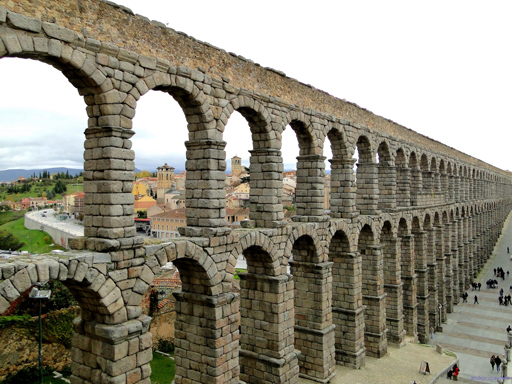1 Toilets and waste
Today the focus tends to be on the positive aspects of the Romanisation of Europe: road networks, town planning and the supply of fresh water to cities. This was also a view found in antiquity. Strabo was a Greek who lived through the fall of the Roman Republic and the beginning of the Roman Empire. In his Geography (5.3.8), he praised the Romans for three major achievements which enhanced ‘the blessings with which nature supplies the city’ of Rome: creating roads, aqueducts, and building sewers ‘to wash away the filth of the city into the river Tiber’. Indeed, he added, the sewers in Rome are so large that wagons loaded with hay can drive along them.
To understand health in the ancient world, you need to think about ancient cities and their effects on health. These were not always as beneficial as the positive view of the city would suggest. Concentrating on hygiene and waste disposal can help to reflect on just how people in the ancient world could judge their own health, or that of someone else. Without modern technologies for seeing inside the body – X-rays, CT scans and MRI – they relied heavily on what came out as a guide to health.
Although they lived surrounded by smells rather than deodorants and air fresheners, the ancient Greeks and Romans shared some of the modern world’s attitudes to odour. They could also find it difficult to talk about excrement without embarrassment. In the first century BCE, praising the design of the human body in his On the Nature of the Gods, Cicero noted that the mouth is perfectly designed to chew and soften food, but he hesitated over describing the other end of the digestive tract. He wrote:
It would not be difficult to indicate the way in which the residue of the food is excreted by the alternate constriction and relaxation of the bowels; however this topic must be passed over lest my discourse should be somewhat offensive.
Later in the same section, he compared the architecture of the body with that of a house:
And just as architects relegate the drains of houses to the rear, away from the eyes and nose of the masters, since otherwise they would inevitably be somewhat offensive, so nature has banished the corresponding organs of the body far away from the neighbourhood of the senses.
Did the reality of life in the ancient world always meet Cicero’s ideals?

